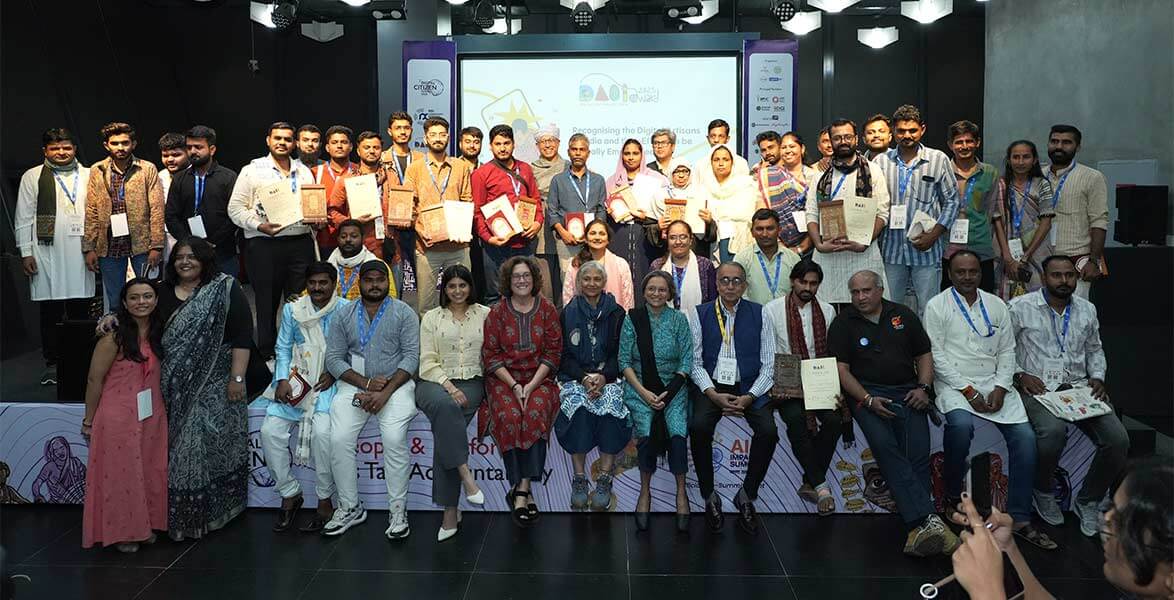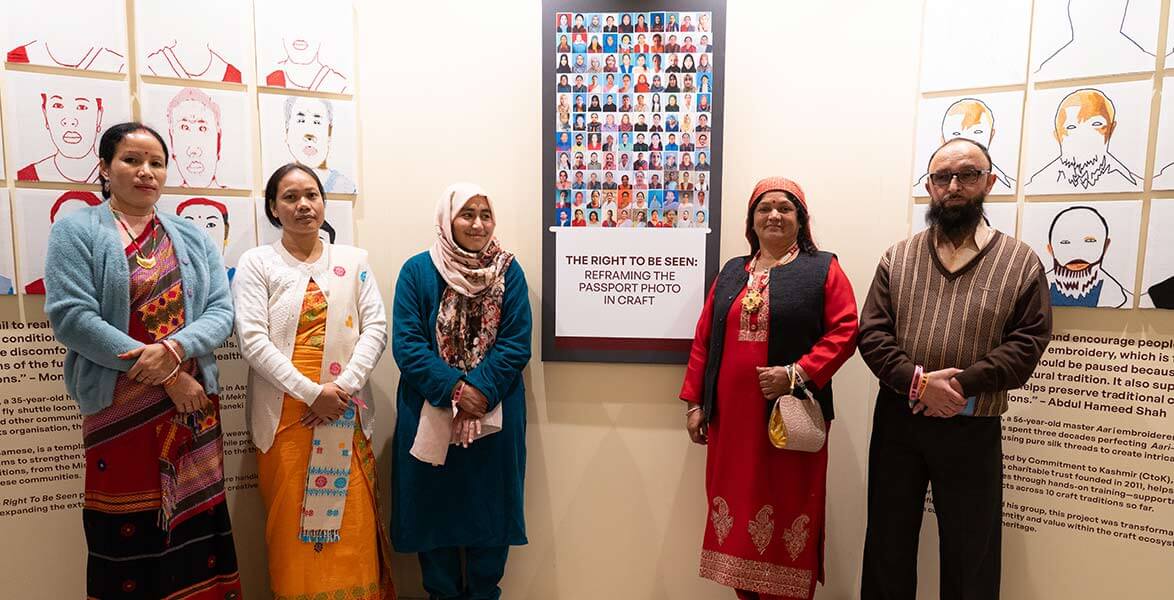Jaya Jaitly’s full recovery from cancer is an uncomplicated account of a complicated experience. She speaks about refusing to mythologise her illness as a demon or a deity, remaining steadfast in her attitude
May 23, 2025. “You will be happy to know that MRI/PET scan shows im (sic) cleared of the health nuisance.” The message from Jaya Jaitly was followed by another. “To celebrate that and my 83rd birthday, I want to gather my friends and colleagues together. Please come on June 14, at 5:30 pm.”
The celebration—hosted by her daughter Aditi Jadeja, who lives a floor above her mum’s in Delhi’s Nizamuddin—was buzzy with chatter, big smiles and
delicious homemade food. Jayaji was surrounded by long-time friends in the presence of her oncologist, Dr Ramesh Sarin, who was dressed in an electric blue chiffon sari.
Jayaji’s spirit lit the room. Jhumki, her beautiful, champagne-coloured cocker spaniel who wears the vibe of an excited adolescent in a little dress, was spinning like a top. Jhumki is Jayaji’s heartthrob, her “medicine”—she will rocket into your arms even if you say half a hello.
Jayaji wore a checkered maroon and ochre woven sari with an unusual
accessory that day—a birthday sash that read Fierce, Flawless, Fabulous. The 83-year-old wasn’t wearing her trademark silver hasli on the neck but her forever maroon bindi sat on her forehead. Her hair, completely salted, short-short, growing back after the invasion of chemotherapy sat lite on her. Her smile as always waltzed between her mouth and eyes, never averting, never slumping.

Most cancer stories follow a culturally learnt script. From diagnosis to chemo and radiation, sometimes aggressive surgeries, hospitalisation, maintenance therapies, ravaging aftereffects and repeated testing to assess how the emperor of maladies is responding. By that version, Jayaji’s was by the letter.
The deeper story is seldom in full view even for those in the front row. Difficulty with or denial of the diagnosis, suffering, pain, loss of energy, loss of hair and muscular suppleness, sapping of optimism, crumbling and numbing of the body at intervals when the disease begins to dominate the dialogue with the self and the world.
That part in Jayaji’s case wasn’t following the script. Barring some occasions when she looked tired, or the time when she shaved her head, when her hair began to fall in clumps, she appeared to be telling the C-Suite emperor to shut up. To go on with what it had to do, while she did the same.
“She wanted to do 30 more things so that none of us would slow down,” says Dimple Behl, associate professor and the head of corporate communications at the National School of Technology (NIFT)-Delhi. Behl and Jayaji have co-authored a book on design, worked together on ‘Kalamanthan’ workshops and on a mini-book series. “One thought after another, one idea after another,” says Behl.
Jayaji not only got on, but packed in more than she usually would. Perhaps that was her way of responding to her diagnosis. The mini books, the rebranding of the 38-year-old Dastkari Haat Samiti, its physical move to a new venue in Delhi’s Janpath; the onerous work on the much-talked-about Gamchha exhibition mounted earlier this year at the National Crafts Museum and Hastkala Academy, another upcoming book on her life and work…
The teams which worked with her on these projects—writers, advisors and communication experts or artisans—might have felt a cautious responsibility towards her. A vigilance even, fraught with some anxiety—given that their leader was dealing with the Big C and prognosis could be uncertain.
But Jayaji’s approach was more like a Big See.

The Big See
“Illness is the night-side of life, a more onerous citizenship. Everyone who is born holds dual citizenship — in the kingdom of the well and the kingdom of the sick… Sooner or later, each of us is obliged to identify ourselves as citizens of that other place.”
American writer Susan Sontag’s 1978 book Illness as Metaphor, part memoir, part critical theory challenged the victim blaming language (and attitude) often used to describe diseases and people embattled by them. A cancer patient herself, when she wrote it, Sontag argued why cancer was not a curse, a punishment or an embarrassment.
Of my many compulsive readings on illness and wellness, it was Sontag’s views that returned, as I observed Jayaji. There was an understated wilfulness about her and a reserved view of her illness. She did not elect to talk about it. When asked, her responses were pragmatic. They were never coated with obligatory positivity—which itself is a huge cultural burden on patients suffering from serious illnesses. It puts the onus on the patient to feel and look well as if they owe it to the wellness industry, their families and doctors.
She let the beast be in the room without feeding it. No dread, no drama. No superstition, no soothsaying, just a casual, pragmatic acceptance. She labelled it as annoyance or nuisance. ‘Cancer’ the word be damned.
“There was never the poor-me, no lament, no complaints about pain, weakness, fever or inability,” remembers Kankana Das. “There was always laughter, non-stop chatter about major and minor projects, phone calls and messages; meetings, catching up with friends, making new ones and basically barrelling forward through daily life at full pelt. True to her nature, she would write jokes on WhatsApp messaging, laughing at herself with candid photographs of burnt toasts, egghead comments about herself,” Das adds. A former journalist who moved to a corporate many years back, Das based in Goa, is co-writing Jayaji’s next book. The contours of the project are being additionally shaped by Srimoyi Bhattacharya, director of Peepul advisory, also Goa-based. Jayaji bought a house there a few years back.

The Flashback
It is July. I am back at Jayaji’s Nizamuddin home. Jhumki circled by Rumi, Aditi’s happily plus-sized black female labrador, a stunner of a girl, have boxed me into a seat. Jayaji is dressed in a cream cotton sari with blue patterns. She says she feels like dressing up again, now that the stoma bag (fitted to collect the body’s waste) has been surgically removed. The exhaustion of last December is replaced by sunlit cheer. Like the light streaming in from the windows.
Flashback flits between us with homemade chivda and nimbu paani.
A year back, Jayaji was scheduled to travel to Paris for a follow-up to her knuckle replacement surgery (silicone implants to correct arthritic damage). That’s where her elder son Akshay Jaitly lives with his family. A battery of blood tests and other investigations had been mandated before further procedures. Jayaji was looking forward to that trip given the memory of having woken up from anaesthetic stupor in complete charm of the handsome surgeon who had replaced her knuckles. “A handsome doctor holding my hand!” she says laughing.
But life can be knuckle-rapping. At Apollo hospital in Delhi where she underwent the tests, she was asked to do a mammogram, then an MRI and finally a PET scan. “I had been feeling a little less energetic in Goa for a month or two but that was about all.”
Once cancer was diagnosed, she took the advice of Dr Colonel CS Pant, one of Delhi’s foremost radiologists who had served in the Indian army. Colonel Pant made some suggestions for Jayaji’s treatment plan, the hospital and recommended oncologists. “Dr Ramesh Sarin’s name was on top of everyone’s list,” says Jayaji.
Jayaji had reacted to the diagnosis with a huff. “Nuisance,” she said to her family who had been by her side throughout. While quick medical decisions were being made with Dr Sarin about urgent chemotherapy followed by radiation, Jayaji’s date with the knuckle orthopaedist in Paris stood summarily cancelled. Annoying indeed.
But instead of getting into the nitty or the gritty, or worrying about the staging of the disease, she took a clear decision to follow the advised treatment without questioning it, while refusing to be dunked in details. “This is how I deal with life altogether. There is a problem, let’s find a way to deal with it.”
With the treatment plan came the medical view that she had an 83 per cent chance of recovery. “Very good,” she remembers thinking.
“There was never the poor-me, no lament, no complaints about pain, weakness, fever or inability.” Kankana Das.

Life’s Lot
The founder of Dilli Haat and Dastkari Haat Samiti, who established and promoted the Gujarat State Emporium Gurjari in the 1980s, Jayaji is a revivalist, activist and author of several books on crafts, textiles, the challenges of artisans and their legacy. Her work resume would be incomplete without a reference to her work as a politician. First as a member of the Socialist Trade Union with the late George Fernandes who went on to become India’s Defence Minister. And as the leader of the Samata Party—the latter part of her political chapter was dogged by controversies and allegations.
Born in Himachal Pradesh, a “pucca” Malayali as she describes herself, she was taken to Japan as a child, and would be educated in Delhi and the US. Jayaji’s life has been adventurous, audacious and exemplary in many ways. Her father KK Chettur was India’s first Ambassador to Japan and her views have diverse socio-cultural influences.
Jayaji has a trademark look—cotton, handwoven saris, mostly chequered weaves from South India, a silver hasli on her neck, hair tied in a bun at the nape of her neck. Among her famous friends was Munni, a Dilli Haat dog who would not leave Jayaji’s side, winter after bitter winter, during the annual Crafts Bazaars.
In December 2024, her oncologist Dr Sarin was invited for a cancer awareness talk at Dilli Haat. Sarin, sparkled in her real-life role—an awareness-spreading oncologist, charmed in exchange by the crafts scene.

The Fabric of Her Medical Life
The fabric of Jayaji’s textured life has been warped with medical challenges that few know about. When she was expecting her daughter Aditi, she didn’t want to risk the baby’s life for a RH factor complication that had already caused one grievous miscarriage. “I didn’t want to lose another child,” she says. With her husband, the former bureaucrat Ashok Jaitly, in Cambridge on a study leave, she enrolled in a trial at a London hospital. “To give Aditi and myself a 50:50 per cent chance”.
The medical trial involved an intrauterine transfusion process where the in-utero baby was transfused with fresh blood every few weeks to keep its blood count balanced, till a Caesarean section could be safely performed. “Forty doctors from all over Europe would virtually watch those transfusions,” she says. She would cook for her husband and first child Akshay at their Cambridge home (first children are not affected by the RH negative factor in the mother’s blood), then take a bus and train to London, get the procedure done, stay overnight in the hospital and return the following day.
She speaks about it fluidly, but that’s the whole point. Hype is not among her talents when she speaks about herself. The transfusion could not have been that simple, as it meant putting a catheter through the abdominal wall and right past the uterine wall into the baby’s bloodstream.
Her patent smile is no patient’s smile. Perhaps the smile understands its place in Jayaji’s personal history and unique health biography.

The Unique Biography Of Illness
Every illness has a unique trajectory in a human body even when the diagnosis is shared by a growing population across the globe, like cancer. Every human being then creates a unique biography of their illness. How they go through it, their realisation or resistance to suffering, pain thresholds, variables of optimism and fatalism, treatments and responses. Add spirituality, vitality, or mental health concerns and you have a memoir in each case. Jayaji’s was neither superstitious nor avowedly spiritual, nor was it darkened by rumination of death. “I took it as an adventure, an education,” she says.
Pain?
“Only upset tummy after chemotherapy. Nothing else. In the ICU that I was in, for a few days after my surgeries (mastectomy and another for the colon, done simultaneously), I would wake up, call home to ask how the dogs were and look around at the misery around me. One of the patients in the bed next to me had wailed the entire night wishing the worst on herself and passed away in the morning. I refused to let myself be distracted. There was so much to do,” she says.
Full Remission
Jaya Jaitly’s cancer went into full remission this May. This was after 29 chemo cycles. Twenty-one for breast cancer and the remaining for the bits that had metastasised to the colon. There would be three week breaks between some. “When the doctors told me that I was in 100 per cent remission, I said wait, I won’t remember all these big words, so just say it again and I will record you,” she says.
Barring her wheelchair dependence during the announcement of Dastkari Haat Samiti’s new venue and bazaar in Janpath last year and some visible exhaustion during the Gamchha exhibition this February, if her body went through wringing and ravaging, she didn’t allow it to knock down the barriers she has effectively put in place for self-nurturance. “I was perhaps born like this, I handle everything this way. There is no special effort,” she says.
Then came the Design x Design Award in February by Incubis in partnership with Alliance Francaise, which honours enablers of design. Posture erect, smiling effusively, bindi, hasli, red and black handwoven sari in place, she received it with her post-chemo head and hair. The audience rose in applause.

Can Attitude Influence Prognosis?
Dr Ramesh Sarin, Jayaji’s treating oncologist at Delhi’s Indraprastha Apollo Hospital, has close to 50 years of experience. She is an astute lady who believes in a straightforward approach with her patients. Sarin’s sensitivity as a human being bonds with her skill as a surgeon. “I still trust my hands,” says the scalpel artist. She can “get” the cancer in a surgical setting; cut, sew and seal with the finesse of a needle artisan.
She agrees that Jaya Jaitly’s attitude was exemplary. “She is precious, a gem of a person. You want her to live long and be well. Everyone on the oncology team was concerned about what would show on the PET scans, but once it was there, you had to accept it,” she recalls.
“You can’t wish away cancer with smiles or positivity. It can be jaan leva (life-taking),” she says. In Jayaji’s case, Dr Sarin says, her family stood by her as a rock. “A rock behind a rock, how could she fall?”
The oncologist also agrees that displacing anxiety has big gains. She believes in the value of not using the “cancer” word repeatedly in fear or apprehension, as it creates its own mythology. Hope is an irrefutable idea in palliative care and treatment, says Sarin. But she is clear about her message as an oncologist—and that is a scientific one. Where there is no synonymity between a good prognosis and a good attitude even though they may be interrelated. “You still have to go through tough treatment. You cannot wish away cancer if it has struck. A realistic acceptance of the disease is critical. Treatment is non-negotiable,” she says.
“Hats off,” adds Dr Sarin, “if Jaya says she had no pain. Because she had two surgeries and the installation of a stoma bag. It is not easy for an 83-year-old.”

Life is Not Just About Courage
When a saw comes at us from time to time, what it hacks and how much is only partially in our control. Which is why it is important not to refute the survivor stories of lesser known people, who remain shining instances in human resilience and steadfastness whether they survived cancer or lost to it. Whether their stories gett recounted by journalists or not.
Stories like Jayaji’s may remind us to light candles also for the unsung. For the vulnerable and the unwell, especially among members of the crafts and textile communities who activists like Jaya Jaitly champion. Not everyone can be known for positivity and not all survivor stories are only about fighting the disease—there is a lot else that people achieve between illness and wellness. Like Alice James, a character in another of Susan Sontag’s plays Alice in Bed, says to someone who reminds her to be positive, “Life is not just a matter of courage.”





